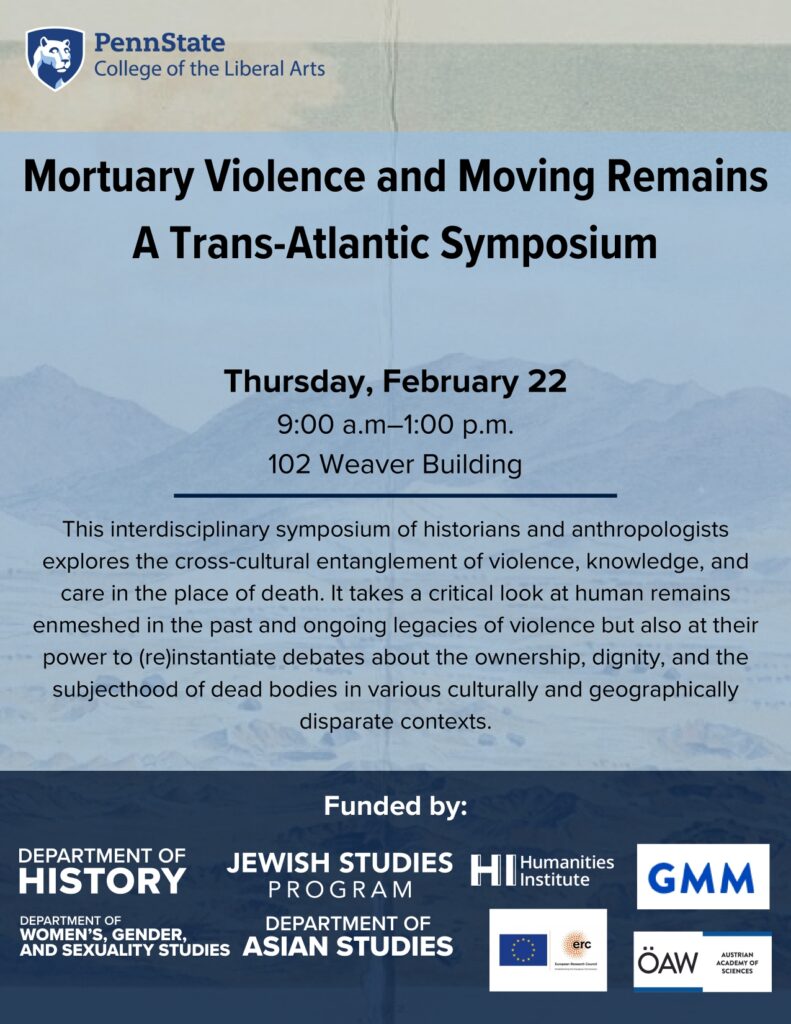The cultural and political position of death and the dead has always been subject to change, reflecting and initiating broader social transformations. Entangled in a dense network of social, political, and economic relations, religious and cultural beliefs, legal frameworks and technological developments, the responses to and attitudes towards death and the dead have invariably mirrored and articulated alterations of many central aspects of social life and shifts in cultural self-understanding. What this symposium builds upon is the recognition that the last decades have witnessed yet another dramatic shift in the role played by death and the dead for contemporary societies, their politics and culture(s). Challenging the diagnoses proposed in the 1970s by Phillippe Ariès, according to which death has become effectively invisibilized or, indeed, ‘forbidden’ in the contemporary (Western) world, we argue that the dead have returned, invested with unprecedented power to organise imagination, structure (memory) politics, and make social worlds.
Continuing a conversation begun in a Spring 2023 conference in Vienna, Human Remains on the Move: Violent Contexts, Institutional Travels, and Global Afterlives of the Dead, this symposium explores the cross-cultural entanglement of violence, knowledge, and care in the place of death. It takes a critical look at human remains enmeshed in the past and ongoing legacies of violence but also at their power to (re)instantiate debates about the ownership, dignity, and the subjecthood of dead bodies in various culturally and geographically disparate contexts. Taking as a vantage point complex moments and long history of circulation of human remains, across many ‘scientific’, cultural, symbolic and heritage settings, we interrogate the politics behind these travels and their implications for thinking about the complex ontology of human remains, and their ability to affect and unsettle the projects of the living. At the same time, the proposed notion of mortuary violence serves as an invitation to reconsider the many and varied modalities of violence to which human remains are subjected posthumously – and their (dis)continuities with broader exercises (necro)governmentality past and present.
Participants:
Roni Mikel Arieli
Zöe Crossland
James Doyle
Zuzanna Dziuban
John Harries
Christopher Heaney
Isaias Rojas-Pérez
Ran Zwigenberg
This symposium has been put together with the support of Penn State’s Departments of History, Asian Studies, Women’s Gender, and Sexuality Studies, Jewish Studies Program, the Humanities Institute, the Austrian Academy of Sciences, and the European Research Council project Globalized Memorial Museums (Grant No. 816784).
